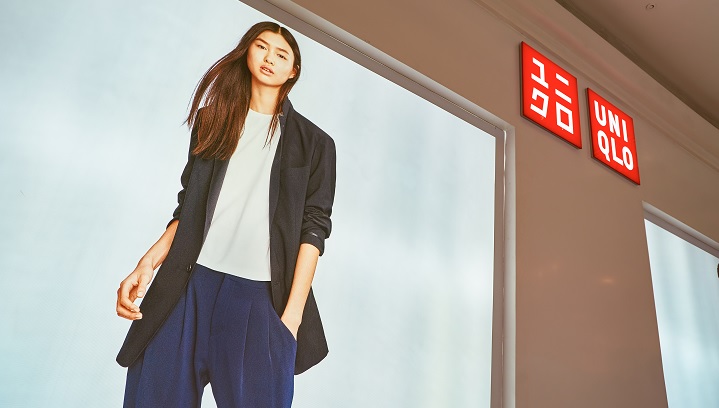Fast Retailing, parent company of fashion giant Uniqlo, is setting its sights on becoming the world’s number one fashion brand by concentrating on its Asian market and making its products accessible to everyone. Last week’s trading results revealed Uniqlo is outstripping Inditex, the parent company of Zara, as the most valuable apparel retailer at US$103 billion, surpassing Inditex’s $99.3 billion market capitalisation for the first time. Clearly, Uniqlo is well on its way to fashion domin
minance.
“While Covid-19 has brought about a difficult period for all businesses around the world, we continue to bring clothing that is simple but made better to suit the evolving needs of the wider community while making Uniqlo accessible to everyone,” Yuki Yamada, CEO of Uniqlo Malaysia and Singapore, told Inside Retail.
Opening more stores in Mainland China has given Uniqlo a head start in making the brand “accessible to everyone”, especially after China was projected to overtake the US as the world’s top apparel market by 2023, according to a GlobalData study.
The report revealed that markets in the Asia-Pacific region, especially China, are expected to be in a better position to counter the Covid-19 impact compared to their American and European counterparts.
“Some brands across China are now seeing store sales return to 80-100 per cent of pre-Covid-19 trading levels as the country relaxes lockdown measures,” said Vijay Bhupathiraju, retail analyst at GlobalData.
Last month, Fast Retailing posted a 23 per cent increase in profit for the three months through November to ¥113.1 billion ($1.09 billion), beating the market’s consensus view of 104.7 billion yen.
Pippa Stephens, retail analyst at GlobalData, said Fast Retailing’s strong reliance on Asia has allowed it to experience an impressive rebound in sales during Q1 FY20/21, with group revenue falling by just ¥3.7 billion to ¥619.8 billion, particularly driven by sales in Japan and China.
“These countries have both seen Covid-19 cases mostly suppressed, encouraging consumers to return to physical stores and releasing pent-up fashion demand, contributing to the retailer’s enviable operating profit growth of ¥21.4 billion, which was also supported by lower discounting this year on the back of unseasonably warm weather in its domestic market during Q1 FY2019/20,” Stephens said.
Although H&M has 5,000 stores and Zara has 2,250 stores globally, Uniqlo has more penetration in the Chinese market. The brand has 800 stores in Mainland China, roughly the same number as those in its homeland Japan, compared with H&M’s 500 and Zara’s more or less 200 stores.
Late last year, Inditex announced it would close up to 1,200 of its stores worldwide while H&M plans to shutter about 250.
Creating a seamless experience
According to Yamada, Uniqlo is experimenting with new ways to make both the physical and virtual shopping experience as seamless as possible for consumers.
“Some possibilities we are exploring include the implementation of a ‘price tag scanner’ function, where customers are able to view details and information of a product simply by scanning its price tag; and a new payment function where customers are able to pay for an item in store to secure stock of an item online,” Yamada said.
Fast Retailing has also reported for years how it has been leveraging technology from its factories through its supply chain to their customers with their automated warehouses and click-and-collect service speed deliveries.
The company has been investing in e-commerce since 2016 and is now expanding online shopping in Japan, China, Southeast Asia and the US.
Uniqlo and sustainability
To become even more competitive with its fast fashion rivals like H&M, Uniqlo has increased its efforts on sustainability.
With consumers now becoming more aware and concerned about the environmental impacts of their fashion purchases, Fast Retailing has stepped up to meet customers’ demands with its in-store garment recycling program and incorporating recycled materials within its clothes, producing more eco-friendly products. Last year, the company officially launched the Blue Cycle Jeans process at its Los Angeles-based Jeans Innovation centre, which aims to reduce the amount of water used during manufacturing. It was applied to all Uniqlo jeans last year.
“Apart from collecting pre-loved Uniqlo items and donating them to underprivileged communities, we also work with low-income women to upcycle fabric scraps recycled from our alteration service,” Yamada added.
In Malaysia, the business is focusing on building sustainability and supporting the community through education.
“We have an ongoing ‘Retail Work Experience Programme’ where we invite underprivileged or refugee students to work and learn in Uniqlo stores and explore retail as a career opportunity,” he said. “Another one of our upcoming projects is to kickstart a ‘Green School Program’ where Uniqlo adopts a welfare home to provide underprivileged youths with education on sustainability and horticulture.”
In Singapore, the brand is spreading awareness of its sustainability initiatives through its in-store Sustainability Corners.
“Some of the products that are spotlighted include our jeans that are made with a technology that cuts water use dramatically by up to 99 per cent during processing, [our Dry-Ex range] featuring polyester made from recycled plastic bottles, our Recycled Down Jackets, as well as the eco bag that enables shoppers to reduce the use of single-use plastic bags,” Yamada said.

